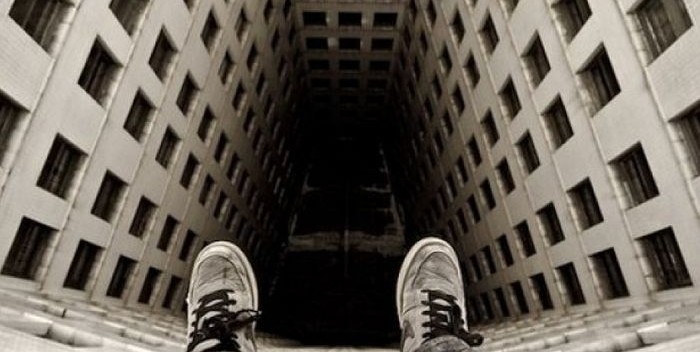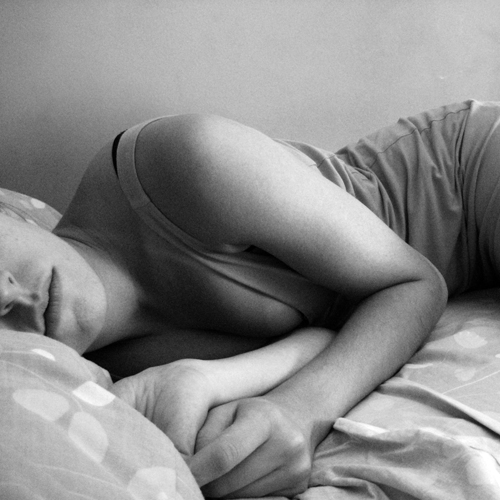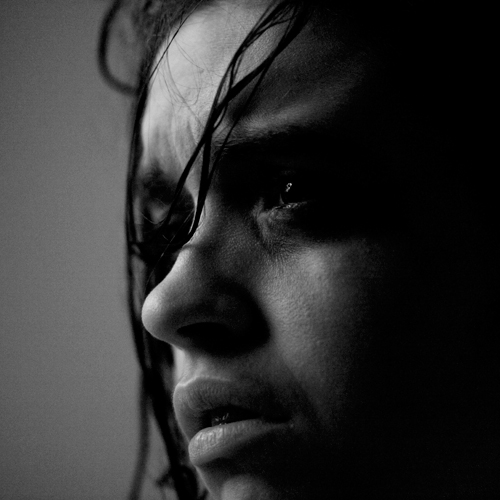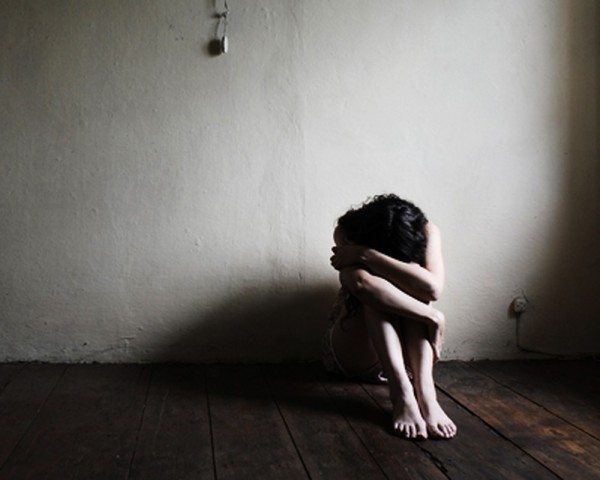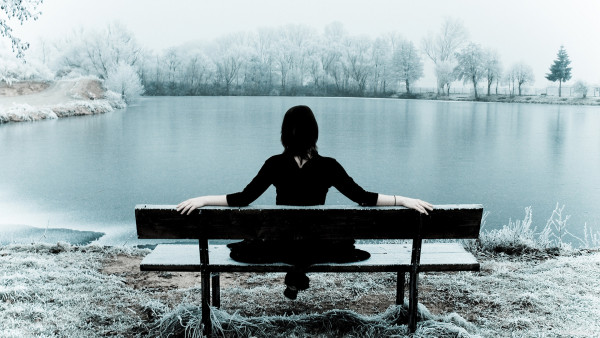21st century disease: how to treat depression
Translated from Latin, depression means "to suppress." This is a disorder of a psychological nature, expressed in depressed mood, inability to feel joy, disturbances in thinking (pessimistic inclinations and negative reasoning). Inhibition in movements is also observed. Self-esteem decreases and general interest in life is lost. Depression has long spilled over into a disease of our time, and every year the number of its "victims" is only growing. How to deal with this condition and how to identify it - let's talk today.
Content
Signs and symptoms of depression
Depression has many "forms" of manifestations, which depend on the type and form of the disease. However, you can identify the typical signs by which it is diagnosed.
Emotionally:
- loss of mood; a feeling of despair; oppression; a state of melancholy; suffering;
- sense of anxiety; internal stress; feeling that something bad is about to happen;
- increased irritability;
- unfounded feelings of guilt; unreasonable self-criticism;
- dissatisfaction and self-loathing; lack of confidence; low assessment of their abilities;
- the ability to experience joy is lost;
- there is no interest in the outside world;
- there is an increased feeling of anxiety for their health; hypochondria.
At the physical level:
- constant sleepiness and insomnia;
- loss of appetite;
- constipation;
- decreased libido;
- rapid fatigability even with low mobility;
- various pains in the body (joints, chest, heart palpitations).
Manifestations in behavior:
- lack of determination and complete apathy;
- pronounced asceticism and unwillingness to communicate even with the closest people;
- lack of interest in entertainment;
- the use of alcoholic beverages or drugs.
On a mental level:
- difficulty concentrating; inability to concentrate attention;
- problems in making a decision;
- many thoughts of a negative nature, especially those opposed to oneself and life in general;
- pessimistic outlook on the future;
- thoughts of suicide;
- inhibition of thinking;
- a sense of their own worthlessness and uselessness.
This is just a small fraction of what a depressed person experiences. In fairness, it is worth noting that for a diagnosis, such symptoms should be observed for at least two to three weeks.
Causes of depression
Depression can occur against the background of deep feelings associated, for example, with the loss of a loved one, status in society, work.
Often, depressive conditions occur due to a lack of serotonin, dopamine and norepinephrine. As a rule, in this case, antidepressants are ineffective, or help very slowly.
In some people, depression develops with prolonged lack of sunlight. People living in the north are especially susceptible to this kind of disease. The situation is especially aggravated in the autumn season.
While taking certain medications, depression can also occur. True, unlike other cases, here depression, as a rule, goes away on its own. It is enough to stop taking medications, as everything is normalized. But the vital period can take up to 1.5 years.
However, a reason is not always needed for depression. According to the statistics of doctors, sometimes the disease occurs by itself, as if "born" from the inside. Thus, 35% of cases were identified.
The consequences of depression
The consequences of a short or long-term, but acute depression are manifested in the form of a cardinal change in character. If a person was an optimist before the disease, then after it pessimistic outlooks on life, fatigue and diseases of internal organs may remain.
During treatment, a person can get used to and, as they say, "addicted" to antidepressants, which will also require treatment. Problems in communication, as well as on sexual grounds, are not excluded.
Physiological factors are added to the psychological side of the issue. The most common consequences are: hair loss, brittle nails and brittle bones, discoloration of the skin (painful pallor), thinness. As a rule, with successful treatment and with the return of a normal psychological state, the physical symptoms go away on their own.
However, if we are talking about female depression, then the problems that have arisen in terms of aesthetics can trigger a new round of depression, which can lead to a vicious circle.
As for the pains that a person felt at the time of depression (heart palpitations, pain in joints, chest, etc.), they can accompany him for the rest of his life. But not in actual presence, but as a phantom phenomenon.
In order to minimize the manifestation of the effects of depression, or even avoid their occurrence altogether, it is very important to cure the disease to the end. In no case should you save on treatment. Find a good specialist who can help identify and eradicate the cause of depression, as well as select the best and most effective treatments.
Types of depression
There are many types of depression, let's look at some of them.
- Major resistant depression. It is diagnosed when a double course of antidepressant treatment, 14 days each, does not give any results, or the progress is very small.
- Minor depression. A person has at least two symptoms for 2 weeks or more, but the condition does not reach the clinical condition.
- Atypical depression. When a person, in addition to the typical symptoms, has an excessively increased appetite, weight gain is noted, and drowsiness occurs.
- Postnatal depression is called postpartum depression in the common people.
- A transient recurrent depression - its difference from a large one only in the timing of the course. RBD (recurrent depression) is often seen in paroxysmal manifestations, for example, once a month and lasts at least 2-3 days, but no longer than 2-3 weeks. To diagnose this kind of depression, it is necessary that such ebbs and flows be observed for at least a year. The difficulty of identifying can happen if the patient is a woman, since in the weaker sex "depression" occurs with a change in the cycle.
- Dysthymia. A condition characterized by mild mood disturbance. Those. At first glance, the person has a normal state, but from his side every day there are complaints of a bad mood. The symptomatology that is characteristic of clinical depression is not so pronounced in this case. But sometimes, a person's condition may worsen, flowing into a clinical one for several days.
This is a small list of the types of depression, but it is not definitive. Here are species that have specific symptoms. At the medical level, others are also recognized that do not have a verbal designation, only a numerical one. Each of them is diagnosed exclusively by a specialist.
In domestic medicine, there is such a concept as "vital" depression. Literally interpreted, "vital" means "vital." There is a pronounced depressed, dreary, anxious state, as well as unpleasant pain in the solar plexus. This condition, although it is difficult, is easier to treat than other types.
How to deal with depression
To get started on dealing with depression, it is important to start looking at everyday life from a different angle. Otherwise, the treatment will take a long time.
- Change the way you approach your daily responsibilities. Realizing your "new" state, do not set yourself tasks that are obviously impossible. What was previously considered the norm will seem difficult in the current situation, since psychological health is exhausted. Get more rest. Divide large cases into small ones and move in small steps.
- Don't try to make big decisions. If such a need nevertheless arises, try to consult with loved ones whom you trust.
- Avoid stress. As a rule, being depressed doesn't need much. Any little thing that previously passed calmly can now cause a storm of negative emotions. Of course, everything cannot be foreseen, but what is known in advance is best avoided.
- Communicate more with interesting people. Even through “I don’t want to,” make contact with friends and family. Spend more time with them, arrange joint outings. Communication will help you forget. It can be hard at first, but over time it will become a habit and everything will return to normal.
- Do what you really like. A depressive state can occur even because a person is engaged in a job he hates, as a rule, this is work. Think about what you really like and spend your free time on it. What brings joy can be a saving pill in this difficult struggle.
- Introduce sports into your life. Scientists have proven that during exercise, the body secretes happiness hormones - endorphins. Depression slows down the process of their production, and with sports you will force your body to work on a positive.
- Beware of doing nothing. Being alone with yourself, you run the risk of worsening the situation. The thought process, working on a negative wave, can finally crush at the psychological level.
- Review your diet. Lack of vitamins can cause depression. Try to saturate your body with useful microelements as fully as possible. In the first couples, it may be useful to drink a course of multivitamins.
How to help someone get out of depression
It is unbearable to watch how a loved one “melts” before our eyes. Instinctively, there is a desire to help, but it is not always clear how. Of course, ideally, for a specialist to come to the rescue, but not everyone has money for this, and the patient himself does not always express a desire for such treatment. Here are some tips to help you provide first aid.
- Study the “enemy” as much as possible, ie. depression. Consult with specialists how you can help a person in a difficult situation.
- Exercise patience and restraint when dealing with a person. Remember the increased vulnerability of his psyche at the moment.
- Try to explain to the patient that he needs to turn to a knowledgeable person who can help him. This process is not easy, but it is necessary.
- Try to involve the person in activities that they enjoy and can relax and distract from. Thus, he will be able to gradually gain strength.
- If a person has started treatment with antidepressants and psychotherapy, support him, he really needs it.
- Positive changes at the time of undergoing therapy will not appear immediately, and do not allow the person to give up and abandon treatment. Again, patience and gentle persistence will be required.
- If possible, take on some of the sick person's responsibilities. Ideally, if you can arrange for him good vacation, so that he is charged with positive emotions. But in no case should you insist on rest, this can generate a wave of protest. Turn on wisdom and you will be able to do everything smoothly and efficiently.
- Try to avoid situations in which the patient will need to make difficult decisions. Take this initiative, at least temporarily.
- Don't give the depressed person a reason to feel unnecessary.
- Don't try to change situations overnight. Get ready for a long psychological workout, which can drag on from several months to several years.
- Do not criticize the patient. Try the opposite, encourage, inspire confidence and act only in a positive direction. But in any case, do not assume pretense. A person must feel sincerity, otherwise he will begin to feel like a fool.
- Be prepared for unforeseen circumstances. For example, if a loved one starts talking about suicide or death. In this case, you cannot leave him alone. Otherwise, all his ideas can come true.
Treating depression at home
Psychotherapists try to make every effort to help the patient, but 90% of success depends on the latter. You need to make every effort to get rid of the problem. It is also worth realizing that the treatment will not take 1-2 days, but for several weeks, at least. Therefore, it is so important to take independent measures that will enhance the effect of therapy.
Start by stopping comparing yourself to other people. Remember, each person is unique, and unique tasks simply cannot be compared. Each has both positive and negative sides, and ideals exist only in fantasies, in reality they have no place.
Rest, rest and rest again. Most often, workaholics who have only heard about vacations are prone to depression. Leave everything for a while and just go to the sea, or see others Beautiful places, of which there are plenty of them on the planet.
And, of course, seek help from a psychotherapist. Many find it difficult to accept such a situation, believing that his patients are psychopaths, but this is not at all the case. Depression is a complex disease that is almost impossible to cure on your own. A specialist will help build an effective health improvement system, which will yield positive results in the near future.
